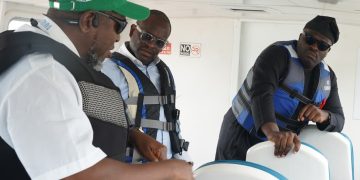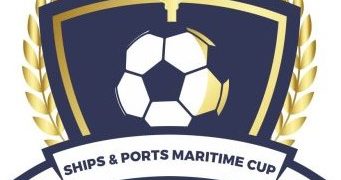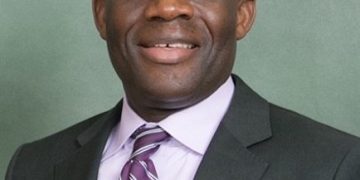- NPA Managing Director, Abubakar Dantsoho
By Anthony Nwachukwu
Towards making the Nigerian ports more competitive and efficient in terms of infrastructure and equipment, the Nigerian Ports Authority (NPA) has raised its rates and dues across its services by 15 per cent.
The increment followed necessary approvals, with the last upward review of tariffs done in 1993. The NPA said the raise will enable the agency address the aged and weak infrastructure, obsolete equipment and low port capacity, which have continued to drag the performance and competitiveness of Nigerian ports.
Globally, port authorities depend on revenue from operations for construction and maintenance of port infrastructure, channels dredging, provision of aids navigational aids and modern marine crafts for efficient harbour services.
Others include automation and digitisation of port transactions, port security, energy efficiency, as well as training and retraining of its employees.
The global index of port rating and competitiveness, which the international trade community relies on for choice of countries to do business with, derives its data from how well the aforementioned responsibilities are addressed.
With the global economic upheaval and scramble for markets, this tariff review constitutes a critical success factor in Nigeria’s quest to win back cargo handling business and its accompanying benefits, including the job opportunities it had lost to maritime neighbours.
Verifiable data show that NPA tariffs are among the lowest in the West African region, the erroneous notion of high port costs relative to its peers notwithstanding.
The high incidence of unrecorded costs due to unduly high human interface, bureaucratic bottlenecks and functional overlaps resulting from absence of a Port Community System and its corollary the National Single Window are responsible for this contrived falsehood.
Though long overdue, a quick win benefits of the NPA tariff review for stakeholders is the immediate boost it gives to the agency to fast track the commencement of actual works on its concluded port reconstruction and modernisation plans.
Secondly, the tariff review provides the necessary guarantees to fund the acquisition and urgent deployment of the Information Communications Technology backbone of the PCS, which is the precursor to the implementation of the NSW.
Furthermore, the increased revenue generation arising from the review buoys the agency’s capacity for critical maintenance works to open up the Eastern Ports for increased vessel and cargo traffic.
This includes reconstruction of the collapsed Escravos breakwaters and challenged aspects of Rivers, Onne and Calabar ports respectively.






























